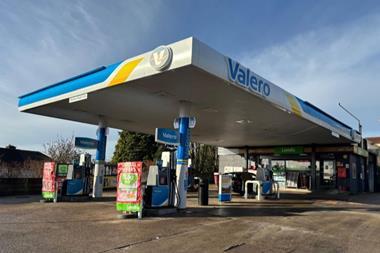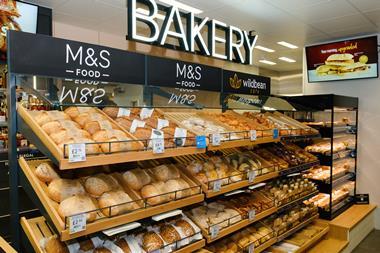Three pillars of the retail petroleum industry came together on stage at last month’s international IDAC conference in London’s Tower Hotel a scenic position alongside Tower Bridge and the River Thames, at which to welcome 250-plus fuel-retailing industry delegates from around the globe. Organised by McClean Communications Ltd, the event dovetailed with ERPEC, the bi-annual gathering of business leaders from Europe’s retail petroleum and fuel marketing industries.
IDAC was billed as an international conference on fuel station design, build and new technology, promising to provide a bigger picture on issues that drive the way petrol stations operate, and it didn’t disappoint.
A day-and-a-half of insightful presentations included a morning session about harnessing IT and new technology for a better customer experience. Martin Gafinowitz, president of Gilbarco Veeder Root; Badouin de la Tour, CEO at Tokheim, and Neil Thomas, CEO at Wayne Fueling Systems each presented their view of the future before coming together on stage for a lengthy Q&A session.
Gafinowitz said fuel retailers were increasingly facing challenges and opportunities that required more sophisticated technologies and business models. "Macro trends in computing as well as the ubiquity and maturation of the cloud are changing how value is created and delivered, disrupting traditional means of doing business.
"Disruptive computing means to reconstruct and improve solutions using cloud-based computing and other enabling technology."
He explained that we are already using cloud computing in limited ways, such as card authorisation, lottery tickets, price changes based upon real-time data, remote wet-stock management and so on.
"But despite these successes, we are held back by a site-level approach to technology integration, which limits our ability to innovate."
He said it was important to communicate with customers in new ways, with a mobile-centric sharing of information. He said retailers should be free to innovate and not bound by legacy assets, processes and connections.
"How would we run our stores differently if we knew the identity, circumstances and mood of every customer arriving on our forecourts?" he said. "We could make their visit more efficient by up-selling, based on current promotions; the number of kids in a car; and target fuel-only customers with third party media.
"Your mobile device has more than enough power to simultaneously run every application at a typical petrol site. What if we could move it all to the cloud? That would result in a lower acquisition cost; while cloud-connected devices report status, problems, and are remotely upgradeable."
De la Tour spoke of the need for optimising retail assets, adding value at every opportunity and enhancing the end- user experience to protect the long-term success of any fuel retail business.
"Innovation is integral to delivering smart solutions and retailers want to see real added value returns for their investment in an increasingly competitive market. So how can control and management of the network be undertaken more efficiently and effectively and which tools and solutions are available today and in the future to provide them with the relevant quality data to make this real?"
He said managing data on a forecourt was not easy. Legacy protocol meant data remained in silos and so it was hard to do anything with it. However, he said wireless technology would change the way we build and manage service stations.
Software in the cloud, kept remotely, would enable complete flexibility, with access anywhere, any time. The growth of mobile payment technology was also a key development.
"New technologies are helping us every day to enhance not just payment transactions but the whole customer journey."
Thomas talked about retailers future-proofing their investments. He said the global retail fuelling equipment industry was massive $2.4bn in spend per year servicing a market of more than 1.2bn vehicles that is growing at the rate of around 3% each year.
He said it was important for retailers to keep pace with rapidly expanding motorist expectations, increased regulation and diverging new technologies, which were all impacting on the way fuel equipment suppliers were bringing new solutions to the market.
He said there were many challenges, particularly in terms of regulation "and the industry is not likely to be less regulated in the future".
Thomas said payment technology was a top priority. "I don’t think it’s the case of ’should’ people put payment terminals on a petrol pump island it’s becoming a must-do. I’ve lived in the US for 15 years where it’s the norm. Practically every gas station has payment terminals at the pump. When I come to Europe and hire a car, there’s nothing that frustrates me more than not being able to pay at the pump and having to go in-store and queue because there’s only one cashier.
"Then there’s the world of mobile payment those of you who use Apple Pay know how easy it is. Mobile payment will speed up the transaction process and enable us to reward our loyal customers.
"Global smartphone users will reach two billion this year, while mobile commerce is booming."
The conference was chaired by Barry Wyeth, director of Wyeth Projects Services, and included sessions on effective strategy, design and branding to deliver retail fuel sector success, led by David Davis, head of Minale Tattersfield’s energy sector.



























No comments yet